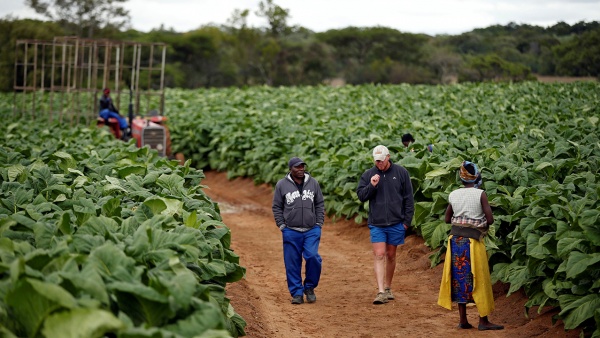
Zimbabwe’s white farmers hopeful about land compensation plan

As Zimbabwe prepares to celebrate 39 years of independence on Thursday, some white farmers are cautiously hopeful about President Emmerson Mnangagwa’s promise this week to give at least partial repayment for land seized from them during Robert Mugabe’s administration.
On Sunday, state media quoted Mnangagwa pledging partial compensation to white commercial farmers whose land was taken under former president Robert Mugabe and redistributed to blacks.
The estimated interim payment is expected to be in the neighborhood of $16 million to farmers in distress, while they work out the total compensation to be paid
Ex-farmers are now submitting requests for compensation at the Zimbabwe Commercial Farmers Union’s offices.
A mainly white farmers’ group, the Commercial Farmers Union (CFU), says the figures being mentioned are nowhere near enough – it says its members are owed up to $9bn in compensation.
The need to pay compensation is written into the constitution adopted in 2013 and it did begin under Mr. Mugabe, but only in a piecemeal fashion, according to the CFU.
The authorities are only legally required to pay for infrastructure such as buildings and dams. They will not pay for moveable assets that were left behind, such as tractors and irrigation pipes.
The government says that it will not compensate the farmers for the value of the land that they lost, which has always been one of the main bones of contention.
Douglas Mahiya, a senior official of the ruling ZANU-PF party, does not think Zimbabwe should compensate white farmers, who in his view, took the country’s land at the point of a gun.
“But we are saying that we compensate [them] for their sweat. And when that happens, then the international world must accept Zimbabwe in the global family again economically and politically,” he said.

The land seizures began in 2000 with the backing of Mugabe, who said they would correct colonial imbalances. Farm production plunged, and critics blamed the seizures for the collapse of Zimbabwe’s economy.
Others blamed the collapse on targeted Western sanctions imposed in 2002, in response to alleged election rigging and human rights abuses.
Many Western countries have made total compensation one of the conditions for the lifting of those economic sanctions.






